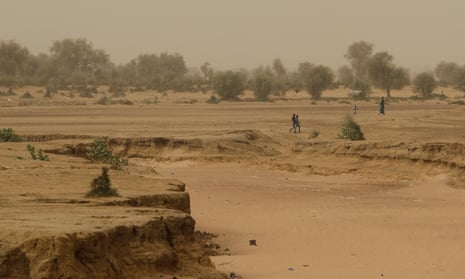Traditionally the Sahel – a semi-arid strip of land, south of the Sahara Desert – is one of Africa’s most productive crop regions. But during the 1980s this region, which stretches from the Atlantic to the Red Sea, became better known for drought and famine. Thankfully the region has become wetter again, and now new research indicates that the return of the rains is most likely a beneficial side-effect of global warming.
Rainfall statistics show that between the 1950s and 1980s summer rainfall fell by around 40% across the Sahel, bringing the region to its knees. At the time scientists speculated that the drought was linked to poor land management, and a rapidly growing population. But newer data indicates that it may have been sulphate aerosols, produced by fossil fuel burning in Europe and North America, which slowed evaporation from the North Atlantic and cut off the Sahel’s moisture source.
Since then we’ve cleaned up our skies, but in the meantime sea surface temperatures have risen and greenhouse gas concentrations have climbed. By modelling these changes, and studying the impact of each change individually, Buwen Dong and Rowan Sutton, from the University of Reading, have found strong evidence that the rise in greenhouse gases was the dominant driver of the recovery of Sahel rainfall. But wWhether these increases will continue into the future isn’t clear, and the scientists also caution that increased rainfall isn’t always beneficial. “If more of the rain falls in short intense events then it may cause flooding and could run-off very quickly rather than penetrate the soil,” says Sutton.

Comments (…)
Sign in or create your Guardian account to join the discussion